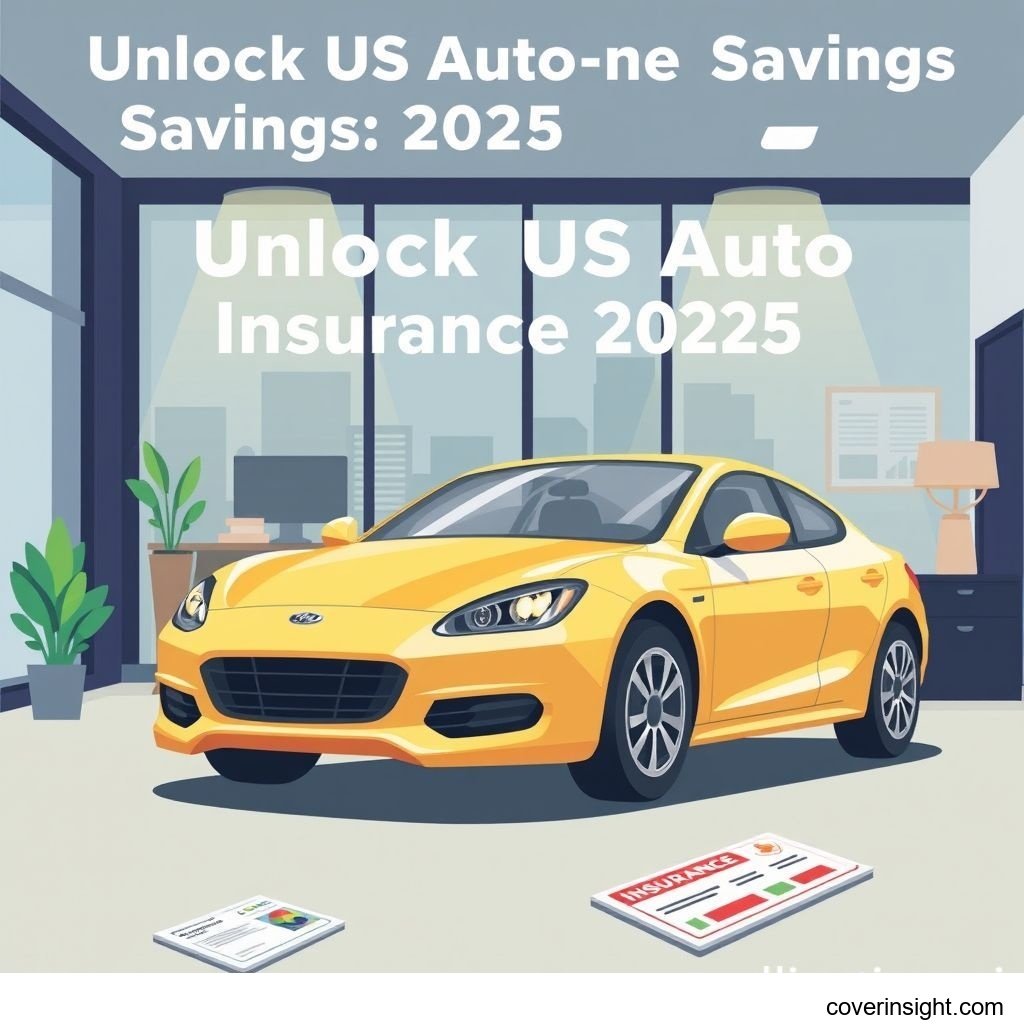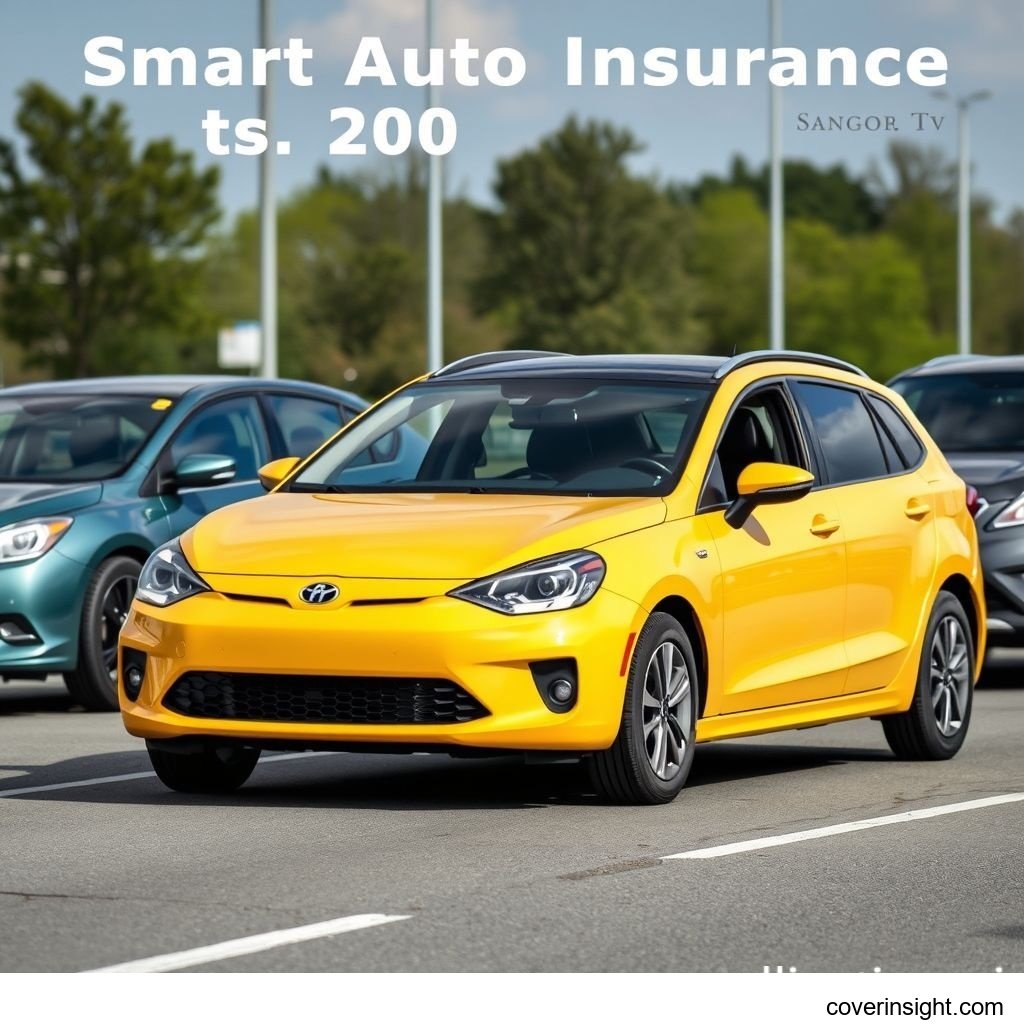Introduction
As we approach 2025, navigating the landscape of auto insurance in the US can feel like a daunting task, especially with premiums seemingly always on the rise. Securing the right coverage isn't just a legal requirement in most states; it's a critical financial safeguard. From fender-benders to more serious collisions, having adequate protection can prevent significant out-of-pocket expenses and provide immense peace of mind. That’s why understanding how to find Smart US Auto Insurance Quotes 2025: Save Big! is more important than ever. This guide will help you decipher the complexities, understand your options, and ultimately, put more money back in your pocket.
Coverage Details
Understanding what your auto insurance policy covers – and what it doesn't – is the first step toward making informed decisions.
What’s Included
Typically, a comprehensive auto insurance policy in the US combines several types of coverage:
-
Liability Coverage: This is foundational and often mandatory. It covers damages (both bodily injury and property damage) you cause to other drivers, passengers, or property if you're at fault in an accident. It's designed to protect your assets from lawsuits.
-
Collision Coverage: This pays for damages to your own vehicle resulting from a collision with another vehicle or object, regardless of who is at fault. It's particularly important if you have a newer car or a car loan.
-
Comprehensive Coverage: Often paired with collision, this protects your vehicle from non-collision incidents like theft, vandalism, fire, natural disasters (hail, floods), and hitting an animal.
-
Uninsured/Underinsured Motorist (UM/UIM) Coverage: This is a lifesaver if you're hit by a driver who either doesn't have insurance or doesn't have enough to cover your damages and medical bills.
-
Medical Payments (MedPay) or Personal Injury Protection (PIP): Depending on your state, this covers medical expenses for you and your passengers after an accident, regardless of fault. PIP can also cover lost wages and essential services.
-
Roadside Assistance and Rental Car Reimbursement: These are optional add-ons that can be incredibly useful, covering things like towing, jump-starts, and a rental car while yours is being repaired.
Common Exclusions
While policies are broad, there are situations where your insurance typically won't cover damages:
-
Intentional Damage: If you intentionally cause damage to your vehicle or someone else's, your policy won't cover it.
-
Racing or Illegal Activities: Using your vehicle for racing, stunts, or in the commission of a crime will void coverage.
-
Wear and Tear: Routine maintenance, mechanical breakdowns, or general aging of parts are not covered.
-
Unlisted Drivers: If an unlisted driver regularly uses your car and gets into an accident, your claim might be denied. Always ensure all household drivers are on your policy.
-
Custom Equipment: Aftermarket modifications or custom equipment may not be covered unless specifically endorsed on your policy.
-
Business Use: If you use your personal vehicle primarily for commercial purposes (like ride-sharing or delivery without proper commercial insurance), standard personal auto insurance won't cover incidents.
Cost Analysis
The cost of auto insurance can feel like a moving target, but understanding the factors at play and knowing how to save can make all the difference when seeking Smart Auto Insurance Quotes for US Drivers 2025.
Price Factors
Insurers consider a multitude of variables when calculating your premium:
-
Driving Record: A clean record with no accidents or moving violations is your biggest asset. Tickets and at-fault accidents will significantly increase your rates.
-
Age and Experience: Younger, less experienced drivers generally pay more due to higher perceived risk. Rates often decrease as drivers gain experience and reach their mid-20s.
-
Vehicle Type: The make, model, year, and even color of your car can impact rates. More expensive cars, those with higher theft rates, or performance vehicles usually cost more to insure.
-
Location: Urban areas with higher traffic density, theft rates, and accident frequencies tend to have higher premiums than rural areas. For instance, according to data compiled by various State Insurance Departments, drivers in major metropolitan areas like New York City or Los Angeles typically pay significantly more than those in smaller towns in states like Iowa or Kansas.
-
Credit Score: In many states, your credit-based insurance score is a major factor. A higher score often indicates more responsible financial behavior and can lead to lower premiums.
-
Coverage Limits and Deductibles: Choosing higher liability limits or lower deductibles (the amount you pay out-of-pocket before insurance kicks in) will increase your premium, as the insurer takes on more risk.
-
Annual Mileage: Driving fewer miles often translates to lower risk and thus lower premiums.
-
Marital Status: Married individuals often receive lower rates, as they are statistically less likely to be involved in accidents.
Saving Tips
Don't let high premiums deter you. There are many ways to secure Smart Auto Insurance Quotes US 2025: Save Big!
-
Shop Around: This is perhaps the most crucial tip. Different insurers use different algorithms, so quotes for the same coverage can vary wildly. Tools that allow you to compare multiple quotes simultaneously can be a huge time-saver.
-
Bundle Policies: Many insurers offer discounts if you combine your auto insurance with other policies, such as homeowners or renters insurance. It’s often a win-win.
-
Increase Your Deductibles: If you have an emergency fund, consider raising your collision and comprehensive deductibles. While you'd pay more out-of-pocket in a claim, your monthly premiums would drop.
-
Maintain a Good Driving Record: This is a no-brainer. Stay accident-free and avoid tickets to earn good driver discounts. Some insurers even offer telematics programs that monitor your driving habits and reward safe drivers.
-
Ask About Discounts: Don't be shy! Insurers offer a plethora of discounts: good student, multi-car, anti-theft devices, defensive driving courses, low mileage, professional affiliations, and more.
-
Improve Your Credit Score: As mentioned, a better credit score can lead to lower rates in many states. Pay your bills on time and manage your debt responsibly.
-
Consider Your Vehicle Choice: Before buying a car, check its insurance costs. Some models are inherently cheaper to insure than others.
-
Review Your Policy Annually: Life changes – marriage, moving, kids leaving home, vehicles aging – all can impact your insurance needs and eligibility for discounts. A yearly review ensures you're not overpaying.
FAQs
How much does auto insurance quote cost?
The cost of an auto insurance quote varies dramatically based on numerous factors specific to each individual and vehicle. There isn't a single "cost" for a quote, as it's a personalized estimate. However, the average annual premium for full coverage in the U.S. can range from $1,200 to over $2,500, with liability-only coverage being less. Your actual quote will depend on your unique risk profile.
What affects premiums?
Premiums are affected by a wide array of factors, including your driving history (accidents, tickets), age, gender, geographic location, type of vehicle, annual mileage, credit score, marital status, and the specific coverage limits and deductibles you choose. The more risk an insurer perceives, the higher your premium will be.
Is it mandatory?
In most US states, auto liability insurance is mandatory. This coverage ensures that if you cause an accident, there's financial protection for the damages and injuries sustained by others. While the specific minimum requirements vary by state, nearly all require at least bodily injury and property damage liability coverage. For comprehensive information, you can consult your specific State Insurance Departments.
How to choose?
Choosing the right auto insurance involves balancing cost with adequate protection. First, determine the mandatory minimum coverage in your state. Then, assess your personal needs: Do you need collision and comprehensive for your vehicle? How much medical payment coverage do you need? What's your comfort level for deductibles? Get multiple quotes from different providers, compare coverage limits and costs side-by-side, and research the insurer's reputation for customer service and claims handling. Don't just go for the cheapest option; ensure it provides the coverage you need. For more general guidelines, the National Association of Insurance Commissioners offers valuable resources. You can also explore broader "Insurance Resources Global" for a wider perspective on coverage options.
Consequences of no coverage?
Driving without mandatory auto insurance in the US carries significant consequences. These can include hefty fines, license suspension, vehicle registration suspension, impoundment of your vehicle, and even jail time in some states for repeat offenders. More importantly, if you're involved in an accident and don't have insurance, you'll be personally responsible for all damages and medical bills, which can easily amount to tens or hundreds of thousands of dollars, leading to severe financial distress or bankruptcy. As a real-world example, in 2023, a driver in Florida was fined over $1,500, had their license suspended for a year, and faced a lawsuit exceeding $50,000 after causing a minor accident while uninsured. The financial and legal repercussions far outweigh the cost of a policy.
Author Insight & Experience
As someone living in the US and having navigated the sometimes-murky waters of auto insurance for years, I've learned that a little homework goes a long way. It's easy to just renew with your current provider, but based on my experience, taking an hour or two every year to gather new Smart US Auto Insurance Quotes 2025: Save Big! can literally save you hundreds of dollars. I once switched companies after realizing my loyalty was costing me about $300 a year for the exact same coverage. It really hit home that insurers aren't just selling a product; they're assessing risk, and your risk profile changes over time. Don't be afraid to put them to the test and see who's willing to give you the best deal for your clean driving record or safe vehicle.









Comments